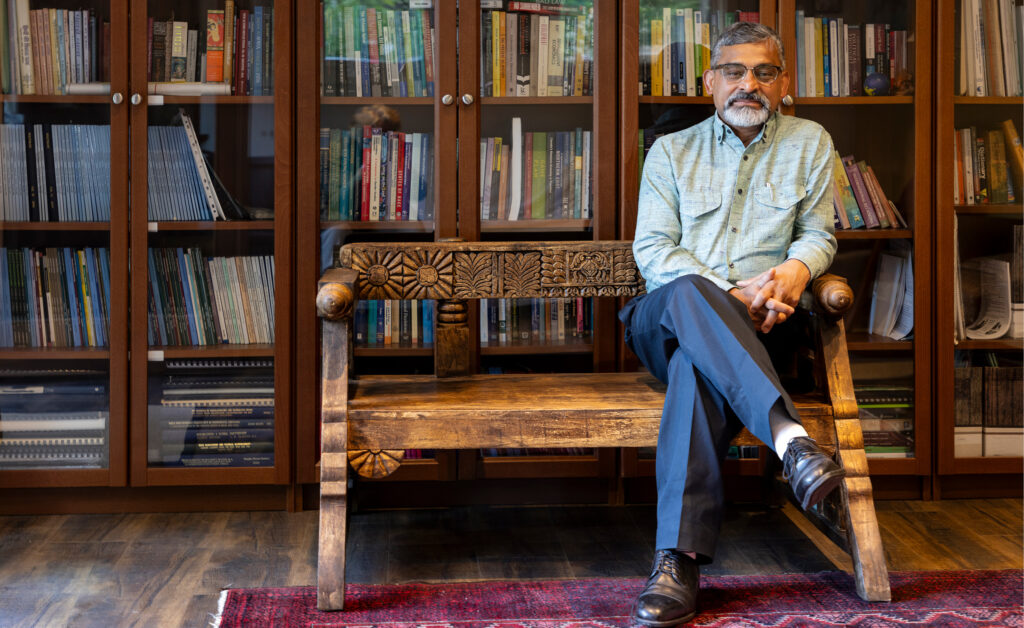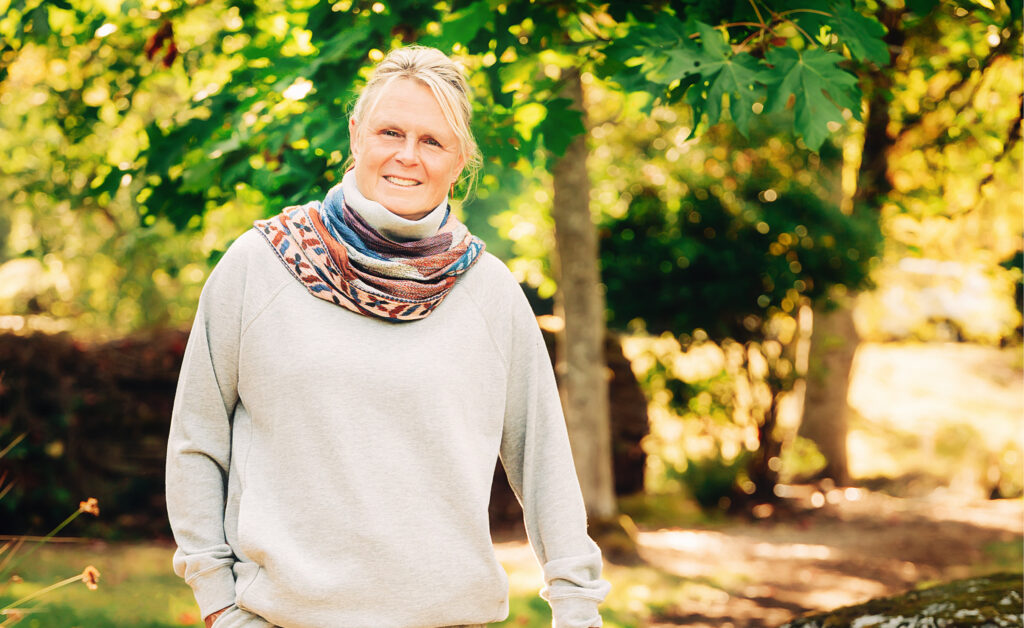by Jamila Douhaibi | photo by Leah Gray –
On the North Saanich Council, Sanjiv Shrivastava is one of the few people of colour on a city council in the Saanich Peninsula. A scholar and educator who grew up in Kenya and Zambia, Sanjiv had a few lifetimes’ worth of journeys before he and his wife made the Peninsula their home. In each country and community, he has seen the effects of segregation and racism, but he believes that at the heart of each person there is compassion.
In the mid-1970s, Sanjiv’s father was recruited from India to Kenya because teachers were needed in various African countries at the time. In his first experience as an immigrant of colour, Sanjiv says that people would tell him that India’s poverty caused his family’s movement to Kenya. He believes they were protected “from the worst of these experiences due to caste and class privilege.” Growing up with the opportunity to visit the country’s national parks and museums also had a lasting effect on his life. Sanjiv beautifully remarks on the “flamboyant flamingos of Lake Nakuru, the majestic Treetop hotel near Mt. Kenya, the glistening peak of Mount Kilimanjaro.” These significant experiences created a curious mind that, even at a young age, understood nature’s ability to persevere.
When he was still in high school, his father’s work transported the family to Zambia. A much smaller town, Sanjiv says that there was only one grocery store, the roads were gravel, and there was no running water or electricity. To solve the issue of going to a stream every day to get water, Sanjiv dug a three-metre-deep well with only a shovel and a bucket. He also walked to different villages to buy vegetables and says that he “felt like a ‘novelty’ whose skin and hair were tentatively touched by curious but friendly onlookers.” During the visits, he would listen to stories told by village elders, share meals and sleep under the sky. This acted as a foundation to the way he now approaches developing relationships within this community.
His love of science, math and physics was also cultivated by his experiences in Zambia. A neighbour taught him advanced classes, and he says that “summer break was spent dancing with mathematics.” He later used this knowledge to assist classmates when their physics and math teacher resigned before the school’s final exams. Watching his mother knitting, connecting knots like networks, made Sanjiv fascinated by how everything works. Even his years studying by kerosene or paraffine lanterns and candlelight molded who he is today, and provided him with a strong appreciation for all of the little things that we take for granted every day.
Moving to Johannesburg in the mid-1980s, Sanjiv saw yet another world of difference and discord. He says that the university, especially the Nuclear Physics department that he was in, had a diverse group of people open to dialogue and debate. But the apartheid regime was apparent in “the visible separation and limited interaction among various groups institutionalized and brutally enforced.”
Sanjiv and his wife Meenal, professor of global studies and an author and writer, moved to North Saanich from Edmonton in 2014. Here, Sanjiv has continued to see hate and seclusion in the reservation system and continued violence and disrespect for Indigenous people in this country. Even as a councillor, he understands that reconciliation goes far beyond the political realm. “We still witness First Nations peoples being shadowed while in grocery stores, or not being afforded the same civic courtesies as others.” Amongst this animosity, Sanjiv also sees the beauty in the people and different cultures and languages on the Island. He says that the way to make change is to “acknowledge our privileges and continuously assess and recalibrate our biases,” which means constantly learning and unlearning.
When Sanjiv first visited the Peninsula in the fall of 2014, he says that the introduction to “the beauty of the shimmering Salish Sea and the lush green mountains set against a periwinkle sky” was an indication that the area would be home. His family has experienced “instances of micro-aggressions and subtle racism which are not just unkind but also make us question if we really ‘belong,'” he says. But the richness of the community and the people they have met and become friends with has helped them to know that they are meant to be here.
Sanjiv’s guiding philosophy is that the whole world is a family. Having lived in countries around the world, Sanjiv says that people are a lot more alike than different, regardless of locality and ethnicity. Even though he has seen hate through the misunderstanding of difference, his overall experiences have shown him that compassion, rather than fear or war, is what has caused humanity to progress.




